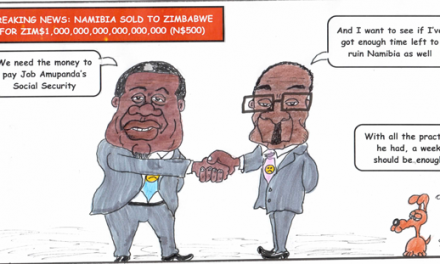
The paradox of so much hunger side by side to so much opulence
Inequality and redistribution are not popular topics. In its basest form, redistribution hints at taking away from those that have and let those that do not have, enjoy a marginally better life. Sounds all too familiar, and for most westerners, too communist.
When Marx wrote his famous treatise dissecting the implications for capitalism of labour’s surplus value, the world was a different place. In 1867 capitalism had propelled Britain and the United States to the top ranks of the world economic order, colonialism was at its zenith, and the sun never set on the empire. One hundred and forty years later, economic reality has struck an over-extended world, countries are fighting for their economic survival, and millions of people around the globe are facing an uncertain future.
This used to be the preserve of Africa. Over the past fifty years, since the African liberation started around 1960, debt, poverty, hunger and conflict, together with an unprecedented population growth, were the trademarks of the so-called Dark Continent. Getting rid of the shackles of colonialism was a long and arduous process during which our greatest achievement was to emulate the masters – grab what you can, make sure your kin and other elite groups are well greased, forget the masses, and kill everyone that opposes your power base.
Redistribution was seen as a primitive expression of the newly liberated to make up for what they coveted but did not have, either the intellectual or institutional ability, at that time, to generate themselves. In short, redistribution was labelled as the quick fix. Rob those that have but do not distribute it to the poor, rather make sure its ends up in a Swiss bank account. Redistribution was a dirty word.
But that is no longer the case. Since 2008, I was at first confounded by the appearance of the concept “Redistribution” in many quasi-economic reports that focussed on social improvement. Then as it occurred with more regularity, I was forced to revisit my own preconceived ideas about redistribution. It seems that lately, redistribution is on the radar of many leading social as well as economic academics.
During the week I browsed through the UNDP’s Africa Human Development Report 2012. Although redistribution is not named directly, hunger does take up a considerable part of the content. “It is a harsh paradox that in a world of food surpluses, hunger and malnutrition remain pervasive on a continent with ample agricultural endowments,” the Director of UNDP’s Africa Bureau is quoted as saying. I could not agree more.
It is reports like these, by reputable institutions, that compel me to take note of the concept of redistribution again. And as the impact of the global financial malaise spreads across societies, many more people will start taking redistribution seriously. Inequality as it manifests itself in poverty and hunger, cannot be ignored. What is the purpose of running in the rat race, trying to ensure a future for the next generation, when such a large portion of humanity, is simply left behind. Population pressure will not abate, it will only become more and more pronounced. With that, inequality will also not diminish until we get to that point where destitute societies simply revolt.
As a rational realist, I know we cannot eradicate poverty with one clever sweep. In fact, I am more than irritated by politicians who use this as an excuse to hide their own incompetence. But in a world where there is so much opulence, it would be irresponsible of me not to take redistribution serious. Not only as a matter of policy, but also as a discipline for serious intellectual investigation.
Am I preaching neo-communism in a camouflaged form? I certainly hope not. I am fundamentally opposed to communism as it does not make any logical sense to deprive ingenuity of its rewards. But it is just as logical a conclusion that if we do not re-introduce the notion of redistribution ourselves, the poor will do it for us. And that will not only happen in Africa, it is going to happen everywhere.
The complexities of the new world order that we are now entering, demand a paradigm shift away from the conventional, dare I say, “colonial” world view. Hunger and more specifically, a hunger child is an affront. From a humane perspective, complacency by those that are well-fed, is one of the greater dangers we face in the not too distant future. It is no use citing impressive per capita figures, when inequality is so pervasive and many children go to sleep on an empty stomach.











































